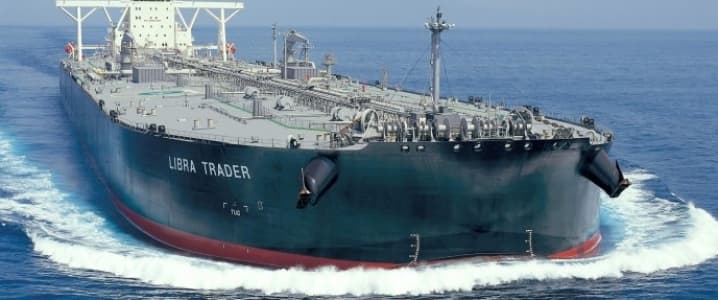Yemen’s strategic Red Sea port, through which some 4 million barrels of oil flow daily to Middle Eastern markets, is becoming a focal point in the proxy war between Saudi Arabia and Iran, and China is the only power with the economic deal-making leverage to keep this from becoming much more than a proxy battle.
The Red Sea port, near the Bab al-Mandab strait, is currently controlled by Yemen’s Shi’ite Houthis, and whoever maintains control of it has a strategic advantage. This port is a pathway connection the Middle East (where the world’s largest proven oil reserves are) and Sub-Saharan Africa (a region expected to see a four-fold increase in energy demand by 2040), making it a coveted geopolitical prize for regional powers, but a livelihood-destroying burden for Yemen’s residents.
The situation reached a new level of tension over the weekend when a helicopter opened fire on a ship en route to Sudan carrying Somali refugees, and killing 42 people. The Saudi-led coalition fighting in Yemen denied responsibility for the attack and suggested that the United Nations is responsible for securing the safety of this waterway. The plea, however, fell on deaf ears, with the UN saying that the warring parties alone are responsible for protecting Yemen’s civilians and infrastructure.
Yemen’s Oil and Port Spoilage Goes to Civil War Victor
To the victor of the proxy war between Saudi Arabia and Iran—aka the Yemeni Civil War—will go the spoils of control of the Bab al-Mandab strait. And a bridge between two of the world’s biggest oil-producing regions is indeed a priceless trophy.
The Sunni coalition fears that if the Houthis gain full and lasting control of this port, they could use it to blackmail their enemies, paralyzing oil trade via the passage.
Holding roughly four billion barrels of oil reserves, Yemen itself makes limited use of the strait compared to the vast potential of the waterway – which sees a thoroughfare of four million barrels of oil a day.
Roughly one year before the civil war began, Yemen’s oil production topped 127,000 barrels per day, but hostilities have forced the exit of virtually all international producers due to security concerns. Existing fields are close to maturity, and in the absence of new oil discoveries, the country’s crude reserves would be exhausted in less than a decade. Related: Trump’s Budget: Valuing Military Over Energy
Yemen shares access to the strait with its massive northern neighbor, but this is not enough for Saudi Arabia, which is threatened by the distribution competition it could face if Iran gets a direct line through the Red Sea port – which is currently in the hands of Shiite fighters.
Since January 2016, Iran has recovered its oil output from the effects of six years of sanctions that left its ports barren. After Tehran agreed to allow international inspectors to monitor its nuclear power program, it reentered oil sector clashes with Saudi Arabian exporters, who had been servicing clients who had to abandon Iran once sanctions prohibited the purchase of the country’s oil resources.
Should Iran and the KSA have an equal hold on Bab al-Mandab, the power struggle would cause competition in Sub-Saharan African markets to intensify as the receiving region builds the infrastructure necessary to accept oil and gas.
The Houthis have repeatedly boasted of missile attacks across the border into Saudi territory, some of them allegedly targeting Saudi oil giant Aramco’s facilities.
Last week, Houthi forces again claimed to have launched a ballistic missile in Jizan, targeting Aramco, and purporting to have successfully hit its target. These reports are never confirmed by the Saudis, and no media sources have been able to unquestionably verify these claims.
Enter China, Stage Right (and Left)
China in 2016 offered support for Yemen’s government, which is backed by a Saudi-led Gulf Arab coalition at war with the Houthi movement, which is backed by Iran and which now controls much of the country.
But this is a tricky balance for China to maintain as it attempts to cut economic and cooperation deals with both sides in this conflict. Beijing is boosting relations right now with both the Saudi royals and Iran.
ADVERTISEMENT
Some $65 billion in deals signed last week on everything from energy to space with the Saudis may throw Chinese leverage somewhat off balance. Related: Can Big Oil Survive A CO2 Crackdown?
But China, which never takes sides in geopolitics, but instead uses economic deals to secure subtle influence, is also heavily courting Iran. Iran is possibly even more important to China’s ambitions to create “One Belt, One Road”-Beijing’s envisioned ‘string of pearls’ infrastructure linking the Eurasian heartland to the Middle Kingdom.
China has even urged Saudi Arabia and Iran to “resolve the problems that exist between them via equal and friendly consultations” and offered to play a mediating role. But as far as China is concerned, whoever comes out on top in Yemen isn’t the issue—it’s how much either of them will be dependent on Beijing.
By Zainab Calcuttawala for Oilprice.com
More Top Reads From Oilprice.com:
- How OPEC Shot Itself In The Foot
- Crude Inventory Build Sends Oil Prices Into A Nosedive
- An OPEC Deal Extension Isn’t As Simple As It Sounds



















I have been watching this story unfold.
I think I know the outcome.
warmest regards and great story.